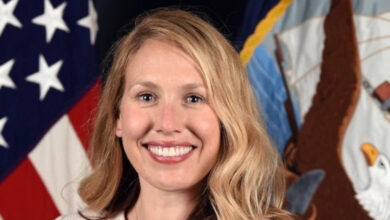Reflections on K-12 science education

by Judith Curry
Today I will be participating in a conference on K-12 education, hosted by the National Association of Scholars.
You can watch the event above youtube. The organization even launched a new document called the Franklin Standards for K-12 Education, available online link
JC’s comments
Hello everyone. I appreciate the opportunity to participate in this workshop.
Let me start by saying that I am excited to teach college freshmen who have been taught the content that Franklin recommends.
I strongly endorse Franklin’s recommendations for teaching Science Studies, History of Science, and Engineering and Technology.
I also abhor the inclusion of activism and equity in the K-12 curriculum.
That said, I see some major issues facing K-12 curricula that the Franklin Standards do not directly address.
First I want to mention students’ motivation to learn science. In the spirit of Ben Franklin, the Franklin Standards emphasize curiosity as a motivator, and I agree that this is especially important in the earlier grades. However, cultivating curiosity is not enough motivation to increase the number of students studying STEM subjects in college. Ben Franklin’s spirit was not just curiosity but also inventions that improved our lives and political philosophy that provided a social context for science. These additional aspects make science more interesting and important for high school students. and help provide motivation to explore careers in STEM fields.
The Franklin Standards emphasize content that I agree is important. However, the best content will not yield good learning outcomes without effective pedagogy. I find that many high school students entering college who have taken AP science courses retain very little of the material and have essentially no functional ability to access relevant content. And of course, less motivated students remember even less of what was taught. Conversely, some students have an excellent operational grasp of what they were taught in high school. Invariably, these students have teachers who challenge them not only with content but also encourage active learning.
The neuroscience of active learning shows that the more ways we can activate students’ brains, the more they learn. I have seen this in my own teaching. I brought this topic up after discussing it with my niece, who just finished 8th grade.th class in an accelerated learning program. She has a natural interest in science but says her science classes are the most boring. Teachers teach a lot of content but don’t provide any context that shows the importance of what children are learning. The labs are pure cookbooks, with no opportunity for critical thinking. Surprisingly, she thought her math teacher did better, with less explicit material to engage. Pedagogical issues and inquiry-based learning are important for the best science students.
The Franklin Standards recognize that science education has two goals. The first is pre-professional education, which meets the needs of students like my niece. Second is the need to focus on citizens to have an understanding of the complex world they will face as citizens throughout their lives.
I was asked to comment on the importance of the Franklin Standards for public understanding of science and scientific debate, especially with regard to climate science.
The main concern raised in the Franklin Standards document is the politicization of science curriculum and activism. I agree that this is a big problem. However, it is clear that the strong science education content in high school curricula has not led many straight A students to believe that humans face extinction due to climate change and that they can change your gender. I met some of these students in the lawsuit filed by Our Children’s Trust against the State of Montana. Where some very bright Native American high school students became convinced that human-caused climate change was an existential threat to their future.
There are several problems here. Even if schools have a state or district adopted curriculum, that does not mean that curriculum will be taught. Furthermore, children are being taught material at the discretion of individual teachers without official supervision or approval.
The larger problem is that societal issues related to health, the environment, and climate change are complex and fraught with moral ambiguity. It is naive to think that providing students with basic science content will help them combat erroneous beliefs. When experts disagree about both the problem and their solution.
Engaging students in the social context of science, both current and historical, not only increases their learning potential and motivation to learn science but can also support critical thinking about the complex problems facing society.
How can this be done? We should work to integrate science more widely into the curriculum. Not only math but also social studies, English and Literature. Among other things, such integration effectively increases the amount of time in the school day that includes science. But more importantly, it promotes critical thinking about complex scientific topics and social issues.
Instead of endless history courses on war, why not have a course on the History of Science and Discovery? Franklin’s curriculum includes material about famous scientists, which can provide motivation. But there is still an opportunity, and a need for more, to integrate inquiry and discovery with the history and social context of science. Take, for example, Isaac Asimov’s book, Chronology of science and discovery, beautifully describes how science has shaped the world and how it interfaces with technology. Bill Bryson’s A Concise History of Everything is another useful resource, describing the events, conversations, feuds, contests, and necessities that pushed science forward. Such a course would motivate talented students with the potential to major in STEM, while also providing interesting and accessible material to students who find the math and science curriculum difficult. With the right examples, such a course can provide a social context for science and discovery, and help prevent science from being politicized and consensus from being forced.
The key point is to promote independent and critical thinking about pure science, technology and related social issues. This is important for motivating students to pursue pre-professional pathways as well as for general education to think rationally about the increasingly complex science-related problems they will encounter.
Thank




